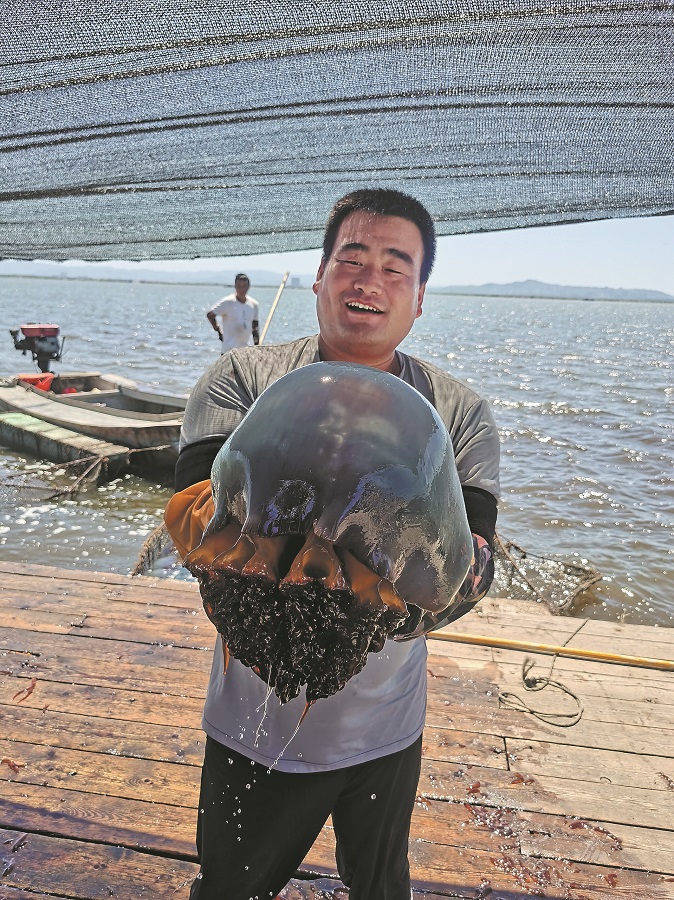Jellyfish production hub spreads its tentacles
Yingkou, Liaoning province, processes 3 billion yuan of the invertebrate, employs 50,000 people






Detoxifying
The complex processing of jellyfish, which importantly involves removing the toxins, has laid the foundation for the industry to prosper in Yingkou.
Chen Dehui, head of the Gaizhou Yinghui Aquatic Products Processing Factory, one of the city's major jellyfish processors, is an expert in the field.
The first step is to separate the skin and the bell, the umbrella-like body of the jellyfish, Chen said.
"The second step involves removing the toxins, which is typically achieved by adding water to allow the jellyfish to decompose at around 25 C. This process generates bacteria that can control jellyfish toxins. This is followed by rinsing with clean water," he said.
After washing the jellyfish, they are treated with alum to further detoxify them, which usually takes 12 to 24 hours.
Edible salt is used for preservation. For every 50 kilograms of jellyfish, at least 10 kg of salt are required. After being in brine for 72 hours, the jellyfish are ready for sale, Chen said.
Processing a jellyfish needs perfect timing. Since 95 percent of the creature is water, it can evaporate in sunlight.
Chen's company sends fleets to the Bohai Sea every mid-August to net mature jellyfish older than 80 days. It has a dock operation for the segmentation, slicing and salting of jellyfish. The workers use large water pumps to transport seawater for cleaning and to also keep the jellyfish fresh.
Tao Guofeng, chairman of Yingkou Chenguang Sea Product Co, said jellyfish are the most difficult aquatic product to process.
"A jellyfish contains water-soluble proteins. If it is only salted, it will become smelly. It needs to be combined with alum, and the processing is influenced by factors such as temperature, the season, and environment, with varying proportions of salt and alum used," he said.
The company has developed advanced techniques that enable jellyfish to be processed in one day. A shelf life of more than six months without preservatives or additives can be achieved, but "it requires high standards for equipment and workshops, leading to higher costs", Tao said.



















